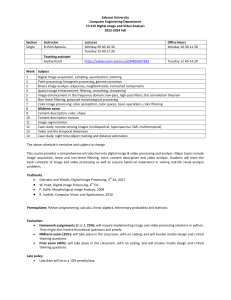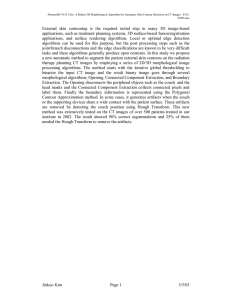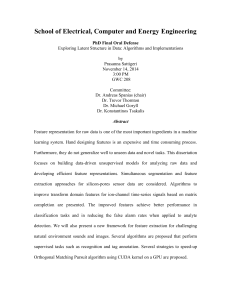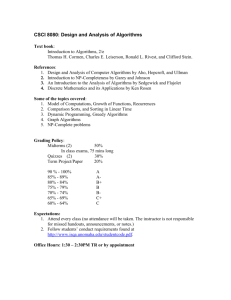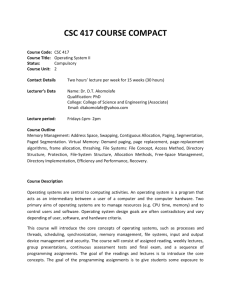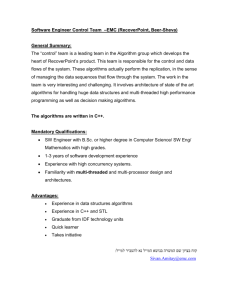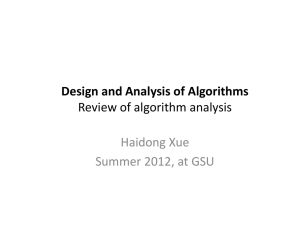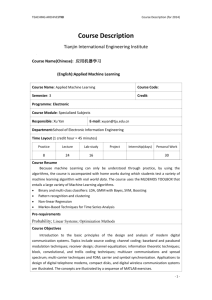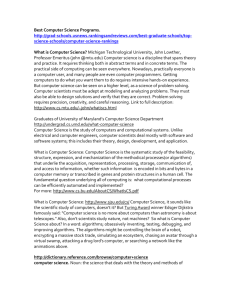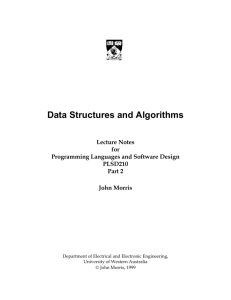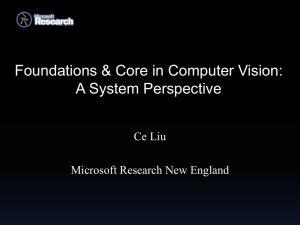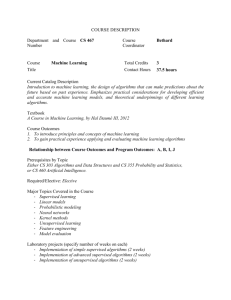Syllabus - Computer Science
advertisement
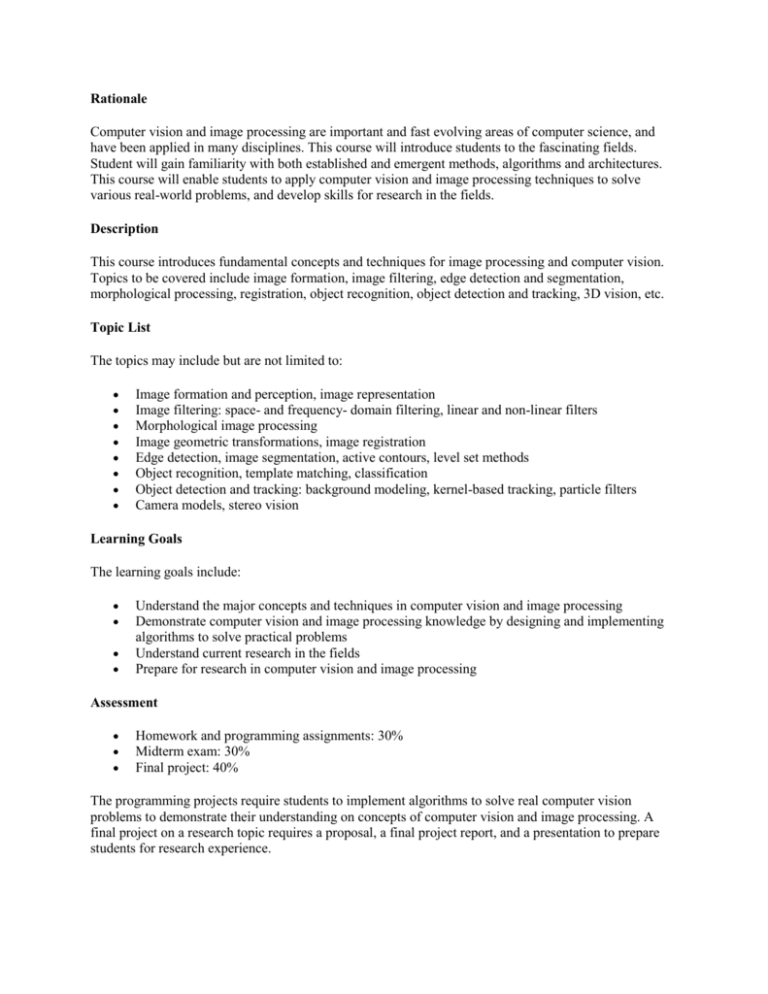
Rationale Computer vision and image processing are important and fast evolving areas of computer science, and have been applied in many disciplines. This course will introduce students to the fascinating fields. Student will gain familiarity with both established and emergent methods, algorithms and architectures. This course will enable students to apply computer vision and image processing techniques to solve various real-world problems, and develop skills for research in the fields. Description This course introduces fundamental concepts and techniques for image processing and computer vision. Topics to be covered include image formation, image filtering, edge detection and segmentation, morphological processing, registration, object recognition, object detection and tracking, 3D vision, etc. Topic List The topics may include but are not limited to: Image formation and perception, image representation Image filtering: space- and frequency- domain filtering, linear and non-linear filters Morphological image processing Image geometric transformations, image registration Edge detection, image segmentation, active contours, level set methods Object recognition, template matching, classification Object detection and tracking: background modeling, kernel-based tracking, particle filters Camera models, stereo vision Learning Goals The learning goals include: Understand the major concepts and techniques in computer vision and image processing Demonstrate computer vision and image processing knowledge by designing and implementing algorithms to solve practical problems Understand current research in the fields Prepare for research in computer vision and image processing Assessment Homework and programming assignments: 30% Midterm exam: 30% Final project: 40% The programming projects require students to implement algorithms to solve real computer vision problems to demonstrate their understanding on concepts of computer vision and image processing. A final project on a research topic requires a proposal, a final project report, and a presentation to prepare students for research experience. Textbook/Reference (recommended but not required) Machine Vision, R. Jain, R. Kasturi, and B. Schunck, McGraw Hill, 1995. Pattern classification, R. Duda, P. Hart, D. Stork, 2nd edition, McGraw-Hill, 2000. Digital Image Processing, R. Gonzalez and R. Woods, 3rd edition, Prentice Hall, 2007. Computer Vision: Algorithms and Applications, R. Szeliski, Springer, 2010. Course website www-cs.ccny.cuny.edu/~csjie/cvip.html
